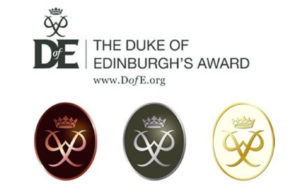Tips for the Duke of Edinburgh Award

What is the Duke of Edinburgh Award?
The Duke of Edinburgh Award is a youth awards programme founded in 1956 by Prince Philip, Duke of Edinburgh. It is designed for 14-24 year olds. It is a personal challenge and not a competition against others.
Award Framework
The Duke of Edinburgh Award is split into three levels – Bronze, Silver and Gold. The differences between these levels are age requirement, length of time to complete and how challenging they can be.
Bronze – You can do a Bronze DoE Award when you are 14. A minimum of 3 months is required in each section – Volunteering, Physical and Skills and an Expedition for 2 days and 1 night.
Silver – You can do a Silver DoE Award when you are 15. You need to do a minimum of 6 months Volunteering and a minimum of 6 months on either Physical or Skills and a further 3 months on the other. Your expedition will be for 3 days and 2 nights.
Gold – You can do a Gold DoE Award when you are 16. You will spend 12 months Volunteering and 12 months on either Physical or Skills with a further 6 months on the other. Your expedition will be for 4 days and 3 nights. Gold Award participants are also required to do a Residential section away from home for 5 days and 4 nights.
Why should I do it?
It improves leadership and team-working skills, whilst also being a good pathway into university or work. You will be setting yourself personal goals and also contributing to the community. You will be pushed outside of your comfort zone and learn new skills to help you carve out a better future.
Expedition:
Keep in mind, you will need to do a practice run of your expedition before the qualifying expedition. DoE expeditions can be tough and participants can find themselves in challenging situations, which are likely to include walking on tough terrain, extended physical effort and environmental hazards such as bad weather. Be prepared at all times with our handy tips below.

1) Clothing
We stock a range of Craghoppers and Regatta to add to your kit list. It is advised to wear layers and avoid materials such as jeans or tracksuit bottoms. Waterproofs are essential as well as light, quick-drying layers – but don’t put all of your layers on at once, as you will need to build up according to the changes in weather and you will soon warm up once you get going!
2) Packing your kit
Your rucksack (when packed) should be no more than a quarter of your body weight, with heavier items packed in the middle and close to your back. This will help stabilise you and hold your centre of gravity. Use Dry Bags to keep your kit dry and order your pack with the items you need the most at the top (such as waterproofs) and sleeping bags at the bottom.
3) Keep hydrated
The recommended daily intake is at least 2 litres, so ensure you keep your water bottle topped up. We also stock filters and water purifiers should you need them.
4) Check the weather
The weather can be very unpredictable, especially in the UK, so it is advisable to check for any weather warnings before heading out and pack accordingly.
5) Eat well and often
Keep energy up with healthy calorie-rich snacks such as dried fruit, nuts and energy bars.
6) Obey the countryside
As you will be likely to be walking through some farmlands, please be aware of wildlife/cattle and close any gates you use behind you. Bring a bag with you to take litter away and respect other hikers you may bump in to.
7) Break in walking boots
You will need to break in your walking boots prior to your expedition to prevent rubbing and tightness. It is advised you do this about a month beforehand.
8) Stay positive
The mood of the group will fluctuate throughout the expedition so aim to keep morale up and help out as much as you can if you see others struggling.
9) Finally, enjoy it!
Stick together, take breaks when needed, enjoy the views and time with your team-mates. It will be a tough, but rewarding expedition that you will remember forever!


